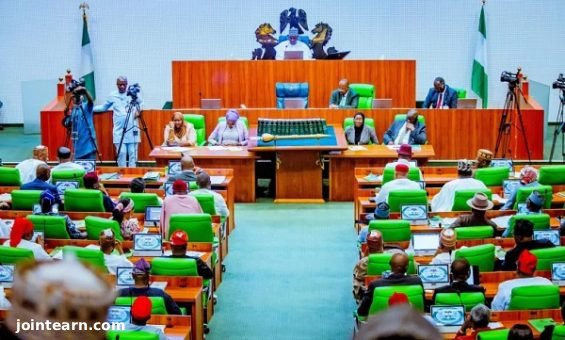
The House of Representatives has resolved to investigate alleged infractions in the importation process, including the diversion of containers, excise duty leakages, irregularities in temporary importation, and misuse of import quotas—issues said to have caused massive revenue losses to the Federal Government of Nigeria.
The decision followed the adoption of a motion moved by Hon. Hassan Shehu Hussain (NNPP–Kano), Deputy Chairman of the House Committee on Customs and Excise, during plenary on Wednesday.
Reps Demand Accountability from Customs Service
The House directed the Comptroller-General of the Nigeria Customs Service (NCS) to intensify surveillance on officers responsible for container transfers and bonded terminal escorts.
It also urged the NCS to deploy technology-driven monitoring systems to ensure that all container duties are fully collected and properly accounted for up to their final destinations.
Hon. Hussain explained that Bonded Terminals and Fast-Track Warehouses were originally established to decongest Nigerian ports, enhance trade facilitation, and boost government revenue. However, he lamented that some operators have abused the system, posing economic and security risks.
Container Diversion Threatens National Security
The lawmaker alleged that several containers under customs escort, covered by bonds from major ports, are diverted before reaching their destinations.
He warned that the contents of such diverted containers are often unknown and could include illicit drugs like tramadol, or even arms and ammunition, which threaten national security.
Excise Duty Abuse and Revenue Leakages
Hussain further revealed that the Federal Government grants tax and excise duty holidays to new factories for up to three years. However, some companies abuse this incentive by continually evading duties even after their grace period expires.
He added that in several instances, manual collection methods have led to inaccurate assessments and poor revenue returns, further deepening losses to the Federation Account.
Irregularities in Temporary Importation Scheme
Highlighting another major concern, Hussain said the Temporary Importation (TI) policy—meant to allow investors to bring in vessels, aircraft, and heavy machinery duty-free for a limited time—has also been widely abused.
“Many organisations with Temporary Importation approvals have exceeded their bond periods, and the required bonds have not been remitted into the Federal Government’s account, resulting in significant unpaid customs duties,” he stated.
Quota Mismanagement and Policy Abuse
The lawmaker also decried irregularities in the import quota system, particularly for sugar and other essential commodities.
He said several importers exceeded approved quotas or recycled expired ones without due authorization, resulting in billions of naira in lost government revenue.
House Resolution
The House mandated its Committee on Customs and Excise to conduct a comprehensive investigation into these practices and report back within a specified period.
Lawmakers emphasized that plugging these loopholes is critical to increasing non-oil revenue and strengthening Nigeria’s fiscal stability.


Leave a Reply